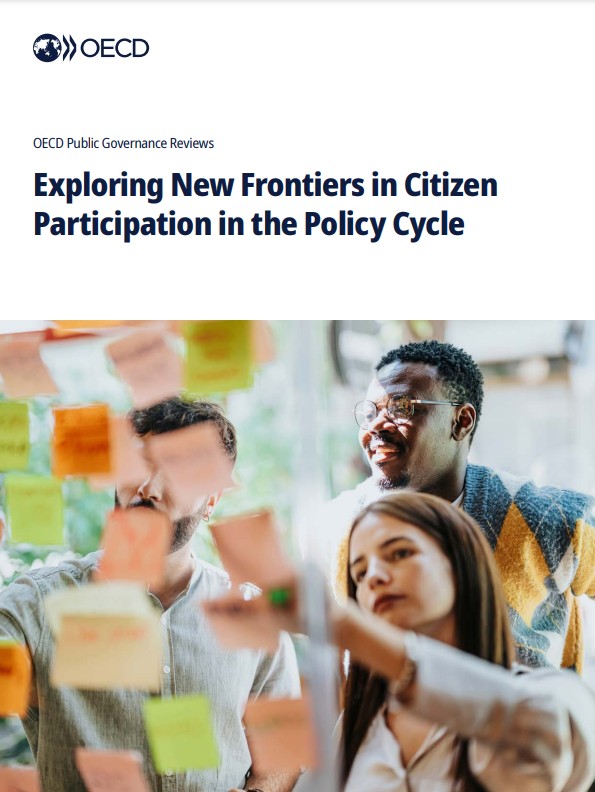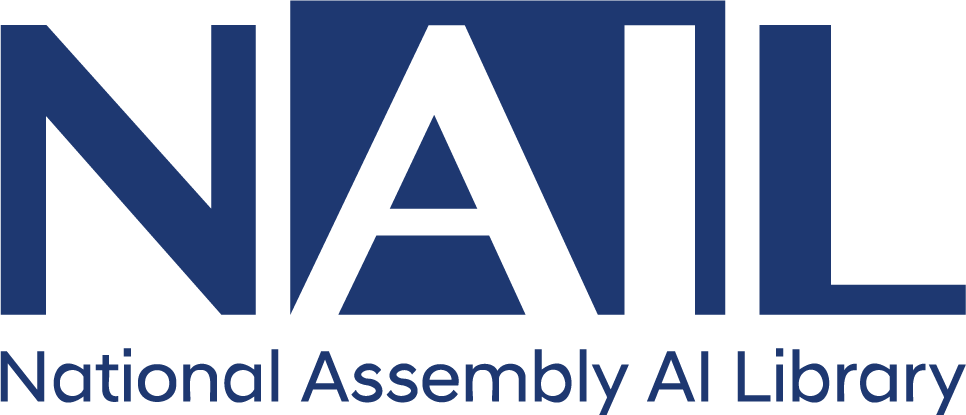
목차
Title page 1
Contents 5
Executive Summary 9
Part I. Putting Citizens at the Heart of Policymaking 11
1. Building Resilient Democracies by Putting Citizens at the Heart of Policymaking 12
1.1. Key messages 13
1.2. Scope 13
1.3. A challenging and evolving context for policymaking in democracy 13
1.4. Rising expectations of citizens for meaningful participation 15
1.5. A renewed commitment to meaningful citizen participation in the policy cycle 19
References 21
Note 22
2. Identifying Systemic Challenges for Citizen Participation in Policymaking 23
2.1. Key messages 24
2.2. Scope 24
2.3. The challenges and limits of putting citizens at the heart of democracy 24
2.4. Adopting a citizen's perspective when considering the main systemic challenges to citizen participation 25
2.5. Four systemic challenges for meaningful citizen participation: shared understanding, co-ordination, alignment and accountability 27
References 37
Note 37
3. Taking Action to Achieve Meaningful Citizen Participation 38
3.1. Key messages 39
3.2. Scope 39
3.3. Embedding citizen participation in policymaking 39
3.4. Adopting a targeted approach to the design of participatory practices 40
3.5. Lowering barriers to citizen participation 42
3.6. Raising capacity for citizen participation 49
3.7. Ensuring citizen participation delivers impact and guarantees accountability 62
References 73
4. Global Citizen Participation: Climate Change as a Test Case 80
4.1. Key messages 81
4.2. Scope 81
4.3. Why choose climate change as a test case for citizen participation? 81
4.4. Applying the functional model to citizen participation in climate change 82
4.5. Emerging institutions for global citizen participation: the case of climate change 83
4.6. Building skills for global citizen participation on climate change 85
4.7. OECD as a multidisciplinary hub for building global systems for citizen participation in climate change 88
References 89
Note 91
5. Moving Forward Together in Exploring New Frontiers 92
5.1. Key messages 93
5.2. Scope 93
5.3. A more strategic approach to citizen participation in policymaking is now imperative 93
5.4. The OECD as a resource for countries to ensure meaningful citizen participation 95
References 96
Part II. Reflections on the New Frontiers of Citizen Participation by Invited Authors 97
Note to the reader 98
6. New Frontiers of Citizen Participation: Strengthening Public Accountability through Synergy 99
What is the missing link? 100
How do we enable public accountability? 100
The development partner community needs to learn and be transformed too 101
Finally, we need to rethink how we learn about and measure "success" 102
7. Breaking New Ground: Enhancing Citizen Participation in Democracy's Digital Age 104
8. New Frontiers for Meaningful Citizen Participation - The Finnish Case 107
Note 109
9. Democracy at Work and Beyond: The Role of Trade Unions in Strengthening Citizens' Participation and Trust in Public Institutions 110
Notes 112
10. Braga's Beacon for Democracy: How the City is Engaging its Residents 114
Convening citizens 115
Informing citizens 115
Citizens' budgets 116
Embracing diversity 116
Focus groups 116
Citizens of the future 116
Our democracy 116
11. Fostering Effective Participation of Business in the Policy Cycle 117
Notes 119
12. Reimagining Citizenship: Leveraging Global Citizenship Education for Planetary Belonging and Democratic Participation 120
13. Reshaping Climate Governance through Democratic Innovation 124
Notes 126
14. The Power of Data and Culture on Citizen Participation 127
Notes 129
15. Not All Democracy is Good - It's Time to Hone our Senses 130
Notes 135
Tables 7
Table 2.1. Components of a functional model of citizen participation in the policymaking cycle 27
Table 3.1. Future AI capabilities and their potential applications to citizen participation 62
Table 3.2. Mapping opportunities for citizen participation at each stage of the policy cycle: examples of institutional and non-institutional channels for engagement 71
Figures 7
Figure 1.1. Share of population who indicate different levels of trust in their national government (on a 0-10 scale), 2023 15
Figure 1.2. People who feel they have a say in what the government does or are confident to participate in politics also express higher trust in the national government 17
Figure 1.3. Improving perceptions of government capabilities related to decision making on complex issues has the largest potential for strengthening trust in the national government 18
Figure 2.1. A functional model of citizen participation in the policymaking cycle 26
Figure 2.2. Four systemic challenges for citizen participation in the policymaking cycle 28
Figure 2.3. Horizontal co-ordination of citizen participation processes among public institutions within a given level of governance 31
Figure 2.4. Multilevel governance and the challenge of vertical co-ordination in citizen participation 32
Figure 2.5. Adopting a citizen's perspective of the "front office" and "back office" functions of public institutions in the policy cycle 34
Figure 2.6. Ensuring accountability for citizen participation across the policy cycle 36
Figure 3.1. Overview of eight models of institutionalised deliberative democracy 69
Figure 15.1. The cycle of democratic culture 132
Figure 15.2. Positive cycle of good democratic culture 132
Figure 15.3. Negative cycle of bad democratic culture 133
Figure 15.4. A hierarchy of democratic needs 134
Boxes 7
Box 1.1. The OECD Survey on Drivers of Trust in Public Institutions 15
Box 1.2. Trust in government varies greatly among different groups in society with implications for the design of meaningful citizen participation 19
Box 1.3. Highlights from the 2024 OECD Global Forum on Building Trust and Reinforcing Democracy 20
Box 2.1. Building on OECD definitions of citizen participation 29
Box 3.1. How do non-participants value citizen participation? Insights from Argentina 43
Box 3.2. Fostering inclusive citizen participation in policymaking: examples from Canada and Finland 44
Box 3.3. Promoting inclusive citizen participation at the local level: the example of Braga (Portugal) 45
Box 3.4. Empowering children's participation in policymaking: the case of Ireland 45
Box 3.5. Empowering citizen understanding of budgeting: the role of Independent Fiscal Institutions (IFIs) 46
Box 3.6. Integrated approaches to citizen participation: the example of Austria and France 47
Box 3.7. Multilevel governance and citizen participation: examples from Sweden, Italy and Poland 47
Box 3.8. Water governance: engaging youth in transborder water management 48
Box 3.9. Building spaces for ongoing civic dialogue: the example of Finland's National Dialogues 49
Box 3.10. The preconditions for citizen participation: information integrity, civic space and a level playing field 50
Box 3.11. Rulemaking: beyond tick-the-box regulatory consultation 51
Box 3.12. Fiscal reporting: empowering public understanding 52
Box 3.13. Infrastructure planning: innovative approaches to engaging citizens and communities 52
Box 3.14. Providing public servants with the skills and support they need to design and deliver meaningful citizen participation: examples from Australia, France and New Zealand 54
Box 3.15. Recognition of skills developed during citizen participation: France 56
Box 3.16. Developing young people's media literacy skills: examples from Canada and the EU 57
Box 3.17. Preparing young people to be future voters: cases from Norway, Sweden and Switzerland 57
Box 3.18. Participatory budgeting for children and young people: cases from Portugal and Czechia 58
Box 3.19. Emerging technologies for participation: an OECD project with Netherlands, Portugal and Spain 59
Box 3.20. Aligning the back office and front office: GovTech and CivicTech to strengthen citizen participation 60
Box 3.21. Using digital tools and AI to boost citizen participation in Colombia, France and Spain 61
Box 3.22. Ensuring accountability for citizen participation in policymaking: OECD legal instruments 63
Box 3.23. Establishing legal requirements for accountability: the 2023 European Commission Recommendation on citizen participation 64
Box 3.24. Ensuring accountability for citizens' input: Scotland's web resource "We asked, you said, we did" 65
Box 3.25. Measuring countries' performance: Towards an OECD Citizen Participation Barometer 67
Box 3.26. Introducing a legal status for citizens who participate: France's proposed "participating citizen" 68
Box 3.27. Establishing centres of expertise for the public sector: France's Centre for Citizen Participation 68
Box 3.28. Embedding citizen participation in parliament: Belgium's regional Permanent Citizen Council 69
Box 3.29. Institutionalising citizen participation: the case of Ireland 70
Box 3.30. A day in the life of a citizen: adopting the citizen's point of view on participation in the policy cycle 72
Box 4.1. The power of deliberation: representative citizens' assemblies 84
Box 4.2. Towards a permanent Global Citizens' Assembly: global citizen participation in climate change 84
Box 4.3. Insights from PISA: mismatch between students' awareness of climate change and sense of agency 85
Box 4.4. Engaging youth in policies to tackle climate change 87
Box 4.5. Towards global metrics for meaningful citizen participation: the OECD Citizen Participation Barometer (CPB) 88



